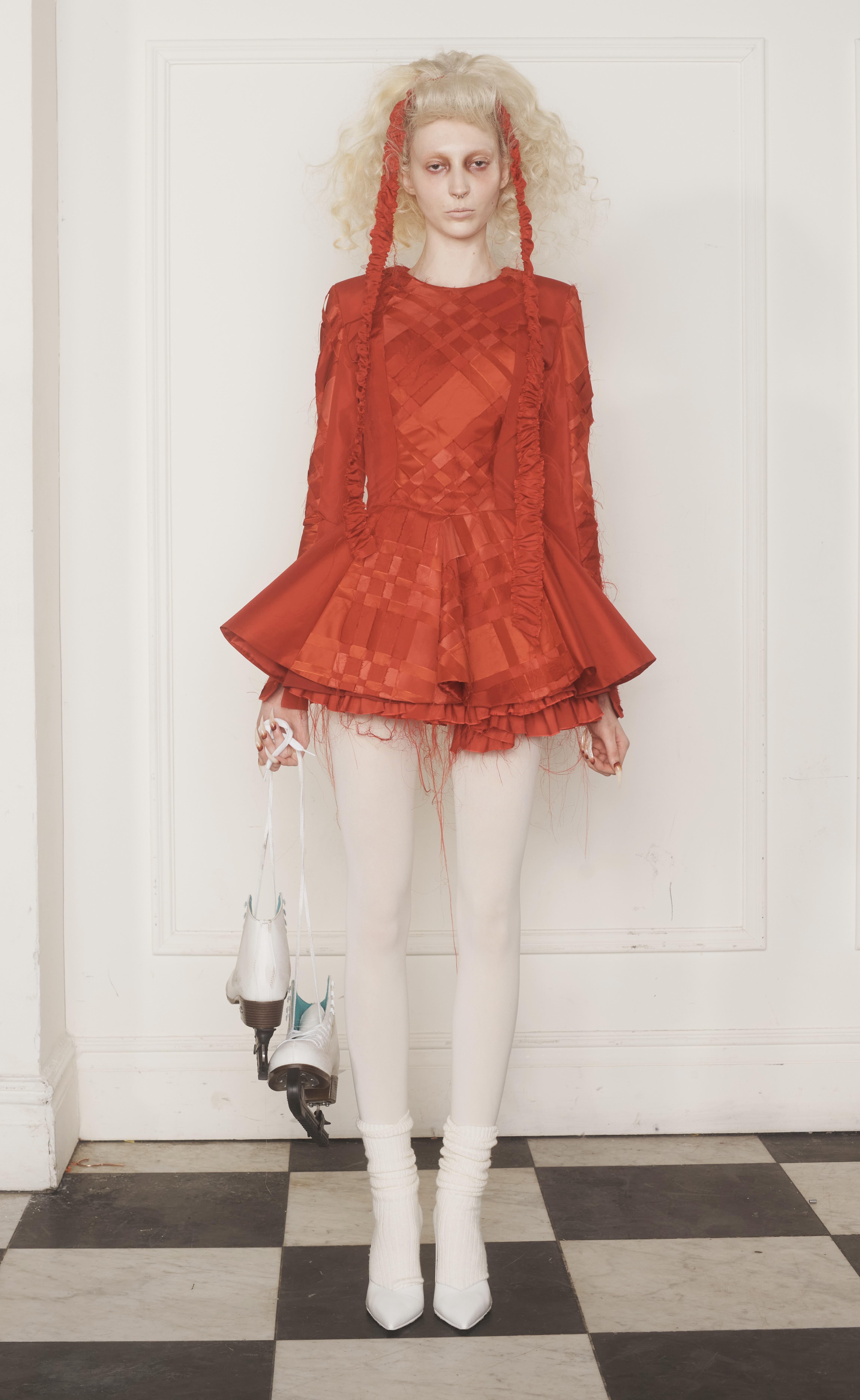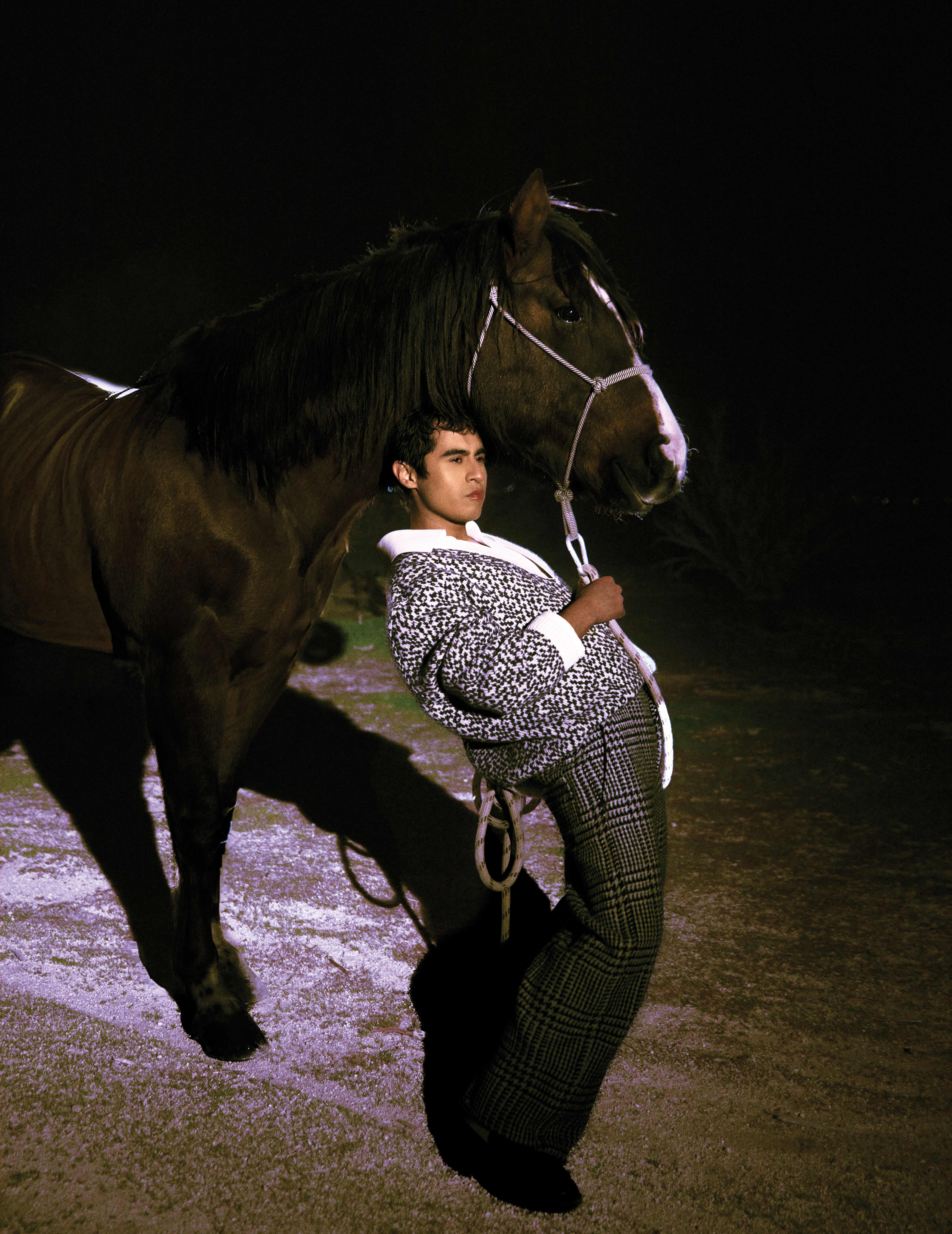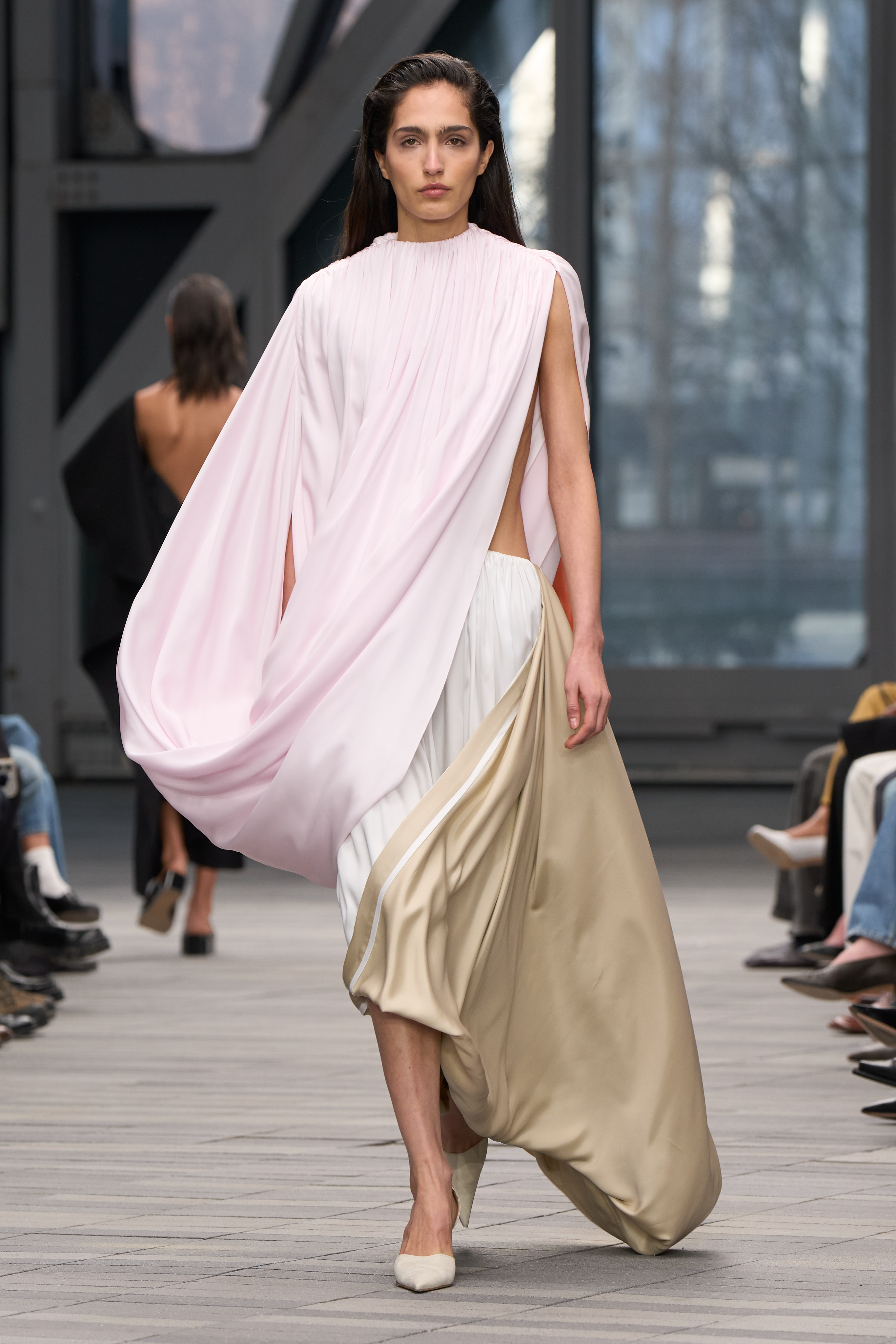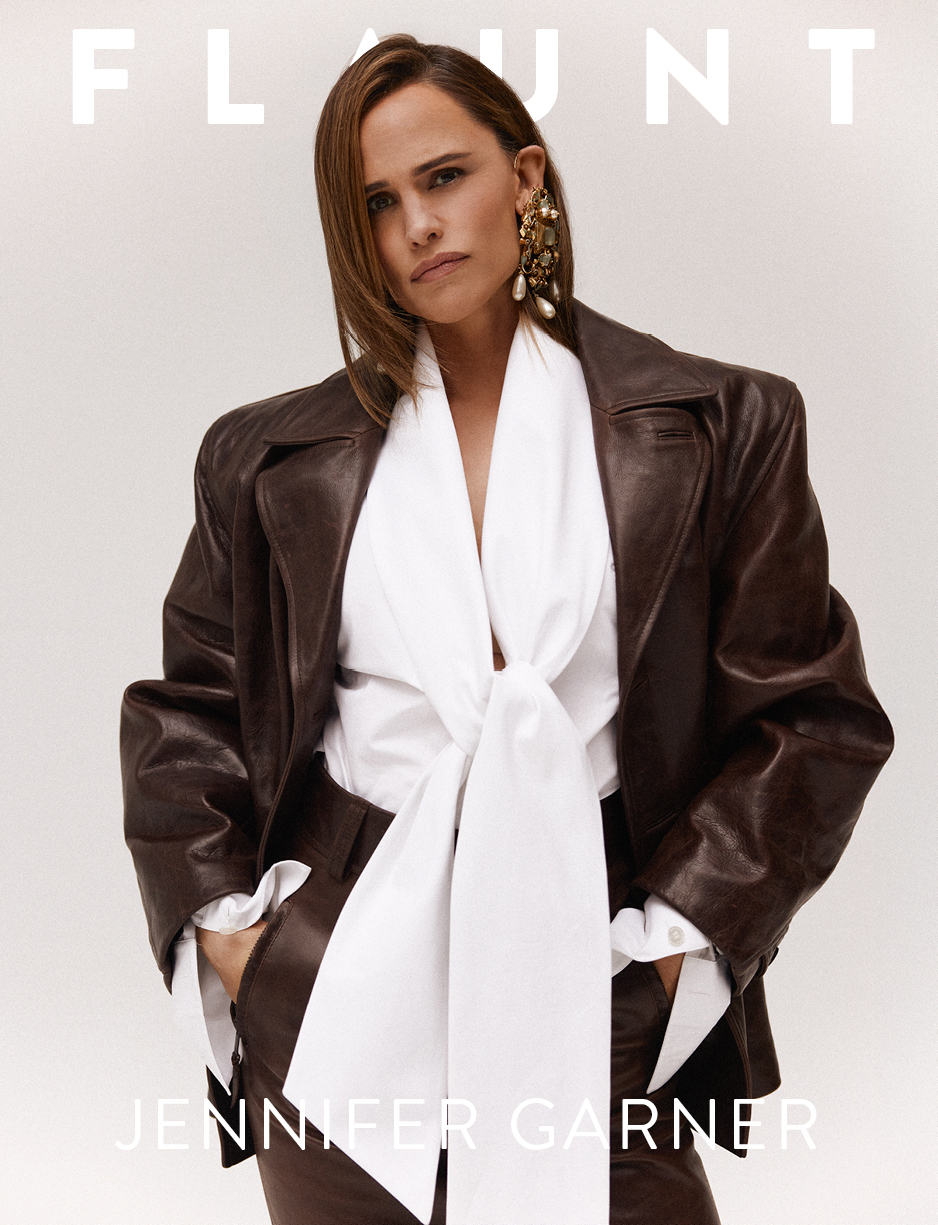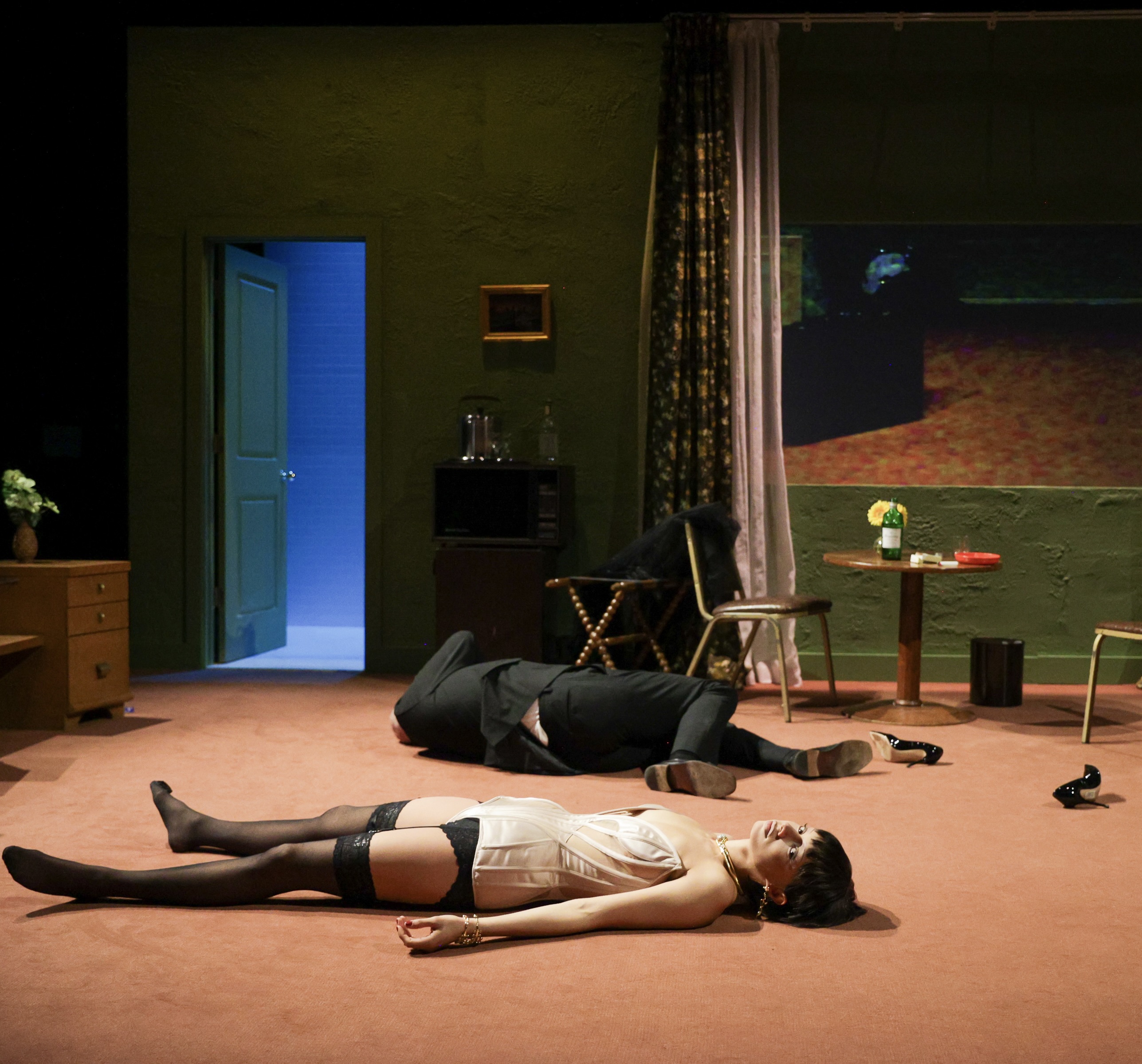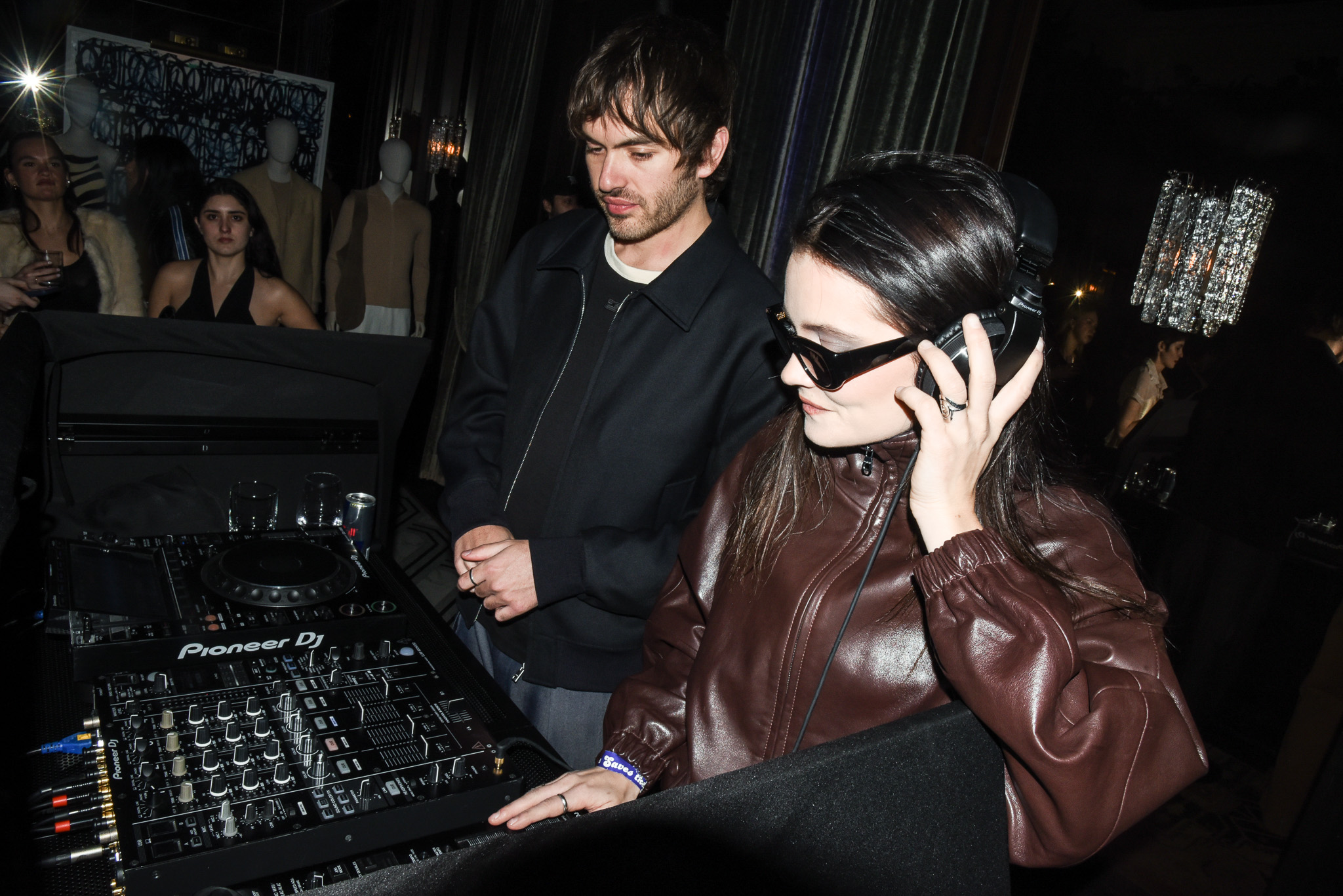

"...as a symbol of resistance to hypermasculinity"
If you’re going to listen to one song on Nick Monaco’s silky new album Half Naked (out on Crew Love Records), may I suggest “Instant Grati cation”? This song contains all the wonderful funks and jazzes, and whispers and claps, and has a guitar riff straight from an ‘80s TV dramedy. One might imagine oneself on the other side of the ol’ ‘tube, within the Moonlighting intro theme: the sun humming into existence over a steaming U.S. Bank Tower-less cityscape, hand and hand with your loved one on a beach, neon-signaled nightlife and crime, and crime- solving—oh and there’s young Cybill Shephard and a hairful Bruce Willis; can we handle more than two seasons of them not having sex after all this insane chemistry? And when they do have sex will we even have a reason to watch the show? Moonlighting was cancelled in 1989 and Nick Monaco was born a year later. Love child? Coincidence? It’s not my place to say. But, do you believe in reincarnation?
At 26, Monaco has already permeated the wild world of the international dance club scene as a genre- and gender-defying artist. He’s a busy man: touring on the heels of Half Naked, promoting good will towards all, not to mention his custom lipstick brand, Freak Flag, which donates all proceeds to the Jim Collins Foundation.
We spoke to Monaco about the power of music and performance—but completely forgot to ask him about the Moonlighting thing.
**What has been the greatest adventure of your career?**
Being able to travel around the world was a monumental change in my life. That was coming straight out of college. I was young, wide-eyed. Being thrown into this international pop scene, you meet so many characters. Life starts to feel like a novel, like The Wolf of Wall Street (2013). I still step back like, “What is going on?”
**What role does performance play in your music?**
For me, songwriting is a form of performance. I put myself in spaces of different characters. When I get to perform it onstage, I get to relive that moment. Each song has its own personality. And I’m a Gemini, so I’m naturally schizophrenic.
People might associate dance music with escapism and commodication, but, specically, club music has a history of being a subversive space. How does your music fit in? I’ve always been very conscious of the history of dance music. I’ve always been an advocate for resisting the modern paradigm of club music, which is hypermasculine and commercial. I’m an underground artist, so I naturally fall into the space where I can resist those paradigms. I’m outward about my political views on sexuality and trans politics. \[Through\] the lipstick campaign, I’ve been able to express my views. I wear lipstick as a symbol of resistance to hypermasculinity.
**Do you find that “lipstick” has a certain resonance that speaks to you?**
Lipstick has so many metaphors. It’s phallic. It’s feminine. It has this commanding symbolism to it. All of that helps propel the political message. I want to play with gender in the club space. I want to bring up the conversation about the origins of dance music, how it was originally a queer space. The lipstick strives to reclaim some of that. And it’s a playful thing. When you’re at a club and you see some androgynous guy wearing lipstick, it makes people feel more comfortable. It makes it more fun.
#### Interview by Keely Shinners
 
"...as a symbol of resistance to hypermasculinity"
If you’re going to listen to one song on Nick Monaco’s silky new album Half Naked (out on Crew Love Records), may I suggest “Instant Grati cation”? This song contains all the wonderful funks and jazzes, and whispers and claps, and has a guitar riff straight from an ‘80s TV dramedy. One might imagine oneself on the other side of the ol’ ‘tube, within the Moonlighting intro theme: the sun humming into existence over a steaming U.S. Bank Tower-less cityscape, hand and hand with your loved one on a beach, neon-signaled nightlife and crime, and crime- solving—oh and there’s young Cybill Shephard and a hairful Bruce Willis; can we handle more than two seasons of them not having sex after all this insane chemistry? And when they do have sex will we even have a reason to watch the show? Moonlighting was cancelled in 1989 and Nick Monaco was born a year later. Love child? Coincidence? It’s not my place to say. But, do you believe in reincarnation?
At 26, Monaco has already permeated the wild world of the international dance club scene as a genre- and gender-defying artist. He’s a busy man: touring on the heels of Half Naked, promoting good will towards all, not to mention his custom lipstick brand, Freak Flag, which donates all proceeds to the Jim Collins Foundation.
We spoke to Monaco about the power of music and performance—but completely forgot to ask him about the Moonlighting thing.
**What has been the greatest adventure of your career?**
Being able to travel around the world was a monumental change in my life. That was coming straight out of college. I was young, wide-eyed. Being thrown into this international pop scene, you meet so many characters. Life starts to feel like a novel, like The Wolf of Wall Street (2013). I still step back like, “What is going on?”
**What role does performance play in your music?**
For me, songwriting is a form of performance. I put myself in spaces of different characters. When I get to perform it onstage, I get to relive that moment. Each song has its own personality. And I’m a Gemini, so I’m naturally schizophrenic.
People might associate dance music with escapism and commodication, but, specically, club music has a history of being a subversive space. How does your music fit in? I’ve always been very conscious of the history of dance music. I’ve always been an advocate for resisting the modern paradigm of club music, which is hypermasculine and commercial. I’m an underground artist, so I naturally fall into the space where I can resist those paradigms. I’m outward about my political views on sexuality and trans politics. \[Through\] the lipstick campaign, I’ve been able to express my views. I wear lipstick as a symbol of resistance to hypermasculinity.
**Do you find that “lipstick” has a certain resonance that speaks to you?**
Lipstick has so many metaphors. It’s phallic. It’s feminine. It has this commanding symbolism to it. All of that helps propel the political message. I want to play with gender in the club space. I want to bring up the conversation about the origins of dance music, how it was originally a queer space. The lipstick strives to reclaim some of that. And it’s a playful thing. When you’re at a club and you see some androgynous guy wearing lipstick, it makes people feel more comfortable. It makes it more fun.
#### Interview by Keely Shinners

"...as a symbol of resistance to hypermasculinity"
If you’re going to listen to one song on Nick Monaco’s silky new album Half Naked (out on Crew Love Records), may I suggest “Instant Grati cation”? This song contains all the wonderful funks and jazzes, and whispers and claps, and has a guitar riff straight from an ‘80s TV dramedy. One might imagine oneself on the other side of the ol’ ‘tube, within the Moonlighting intro theme: the sun humming into existence over a steaming U.S. Bank Tower-less cityscape, hand and hand with your loved one on a beach, neon-signaled nightlife and crime, and crime- solving—oh and there’s young Cybill Shephard and a hairful Bruce Willis; can we handle more than two seasons of them not having sex after all this insane chemistry? And when they do have sex will we even have a reason to watch the show? Moonlighting was cancelled in 1989 and Nick Monaco was born a year later. Love child? Coincidence? It’s not my place to say. But, do you believe in reincarnation?
At 26, Monaco has already permeated the wild world of the international dance club scene as a genre- and gender-defying artist. He’s a busy man: touring on the heels of Half Naked, promoting good will towards all, not to mention his custom lipstick brand, Freak Flag, which donates all proceeds to the Jim Collins Foundation.
We spoke to Monaco about the power of music and performance—but completely forgot to ask him about the Moonlighting thing.
**What has been the greatest adventure of your career?**
Being able to travel around the world was a monumental change in my life. That was coming straight out of college. I was young, wide-eyed. Being thrown into this international pop scene, you meet so many characters. Life starts to feel like a novel, like The Wolf of Wall Street (2013). I still step back like, “What is going on?”
**What role does performance play in your music?**
For me, songwriting is a form of performance. I put myself in spaces of different characters. When I get to perform it onstage, I get to relive that moment. Each song has its own personality. And I’m a Gemini, so I’m naturally schizophrenic.
People might associate dance music with escapism and commodication, but, specically, club music has a history of being a subversive space. How does your music fit in? I’ve always been very conscious of the history of dance music. I’ve always been an advocate for resisting the modern paradigm of club music, which is hypermasculine and commercial. I’m an underground artist, so I naturally fall into the space where I can resist those paradigms. I’m outward about my political views on sexuality and trans politics. \[Through\] the lipstick campaign, I’ve been able to express my views. I wear lipstick as a symbol of resistance to hypermasculinity.
**Do you find that “lipstick” has a certain resonance that speaks to you?**
Lipstick has so many metaphors. It’s phallic. It’s feminine. It has this commanding symbolism to it. All of that helps propel the political message. I want to play with gender in the club space. I want to bring up the conversation about the origins of dance music, how it was originally a queer space. The lipstick strives to reclaim some of that. And it’s a playful thing. When you’re at a club and you see some androgynous guy wearing lipstick, it makes people feel more comfortable. It makes it more fun.
#### Interview by Keely Shinners


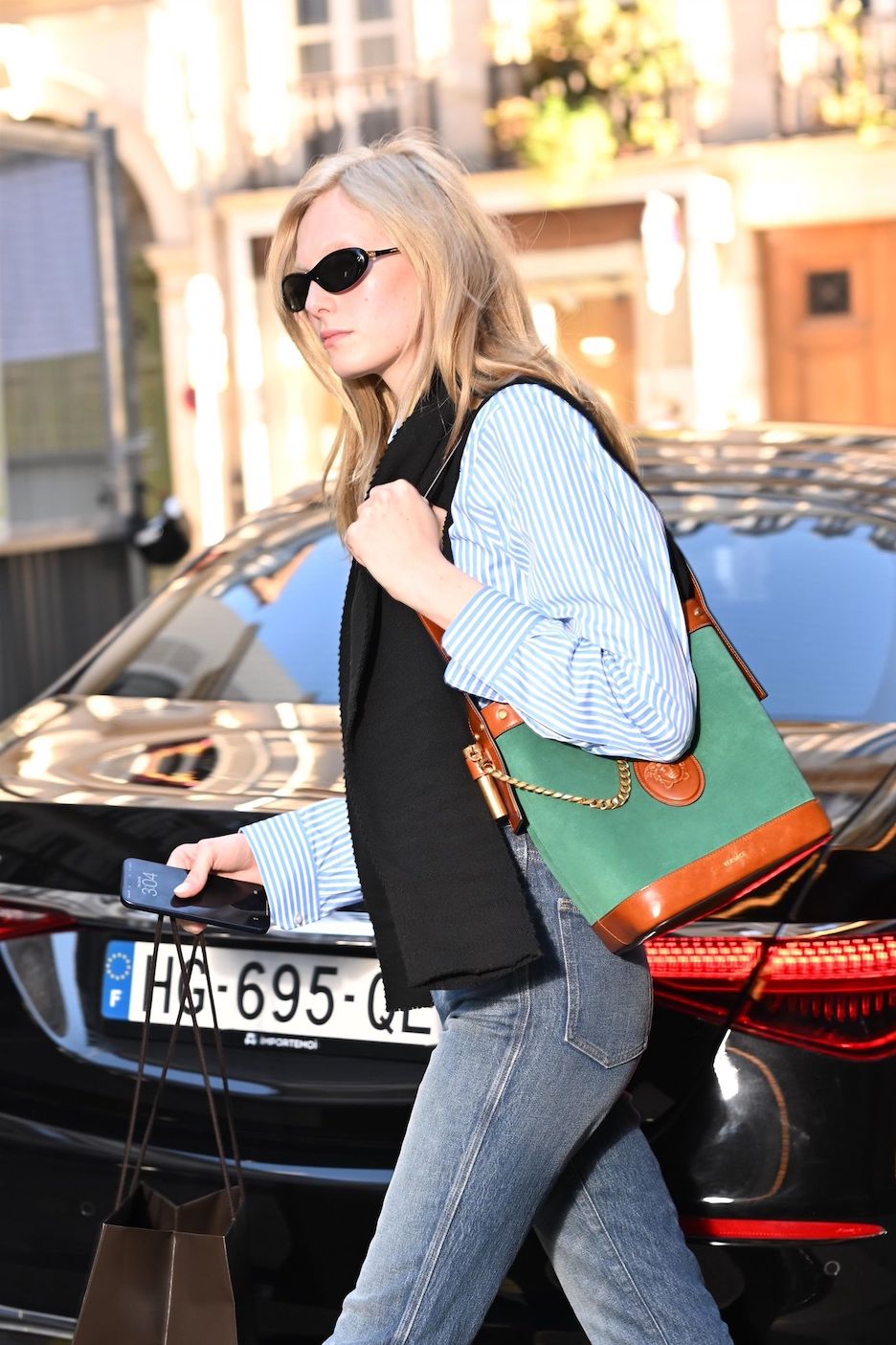
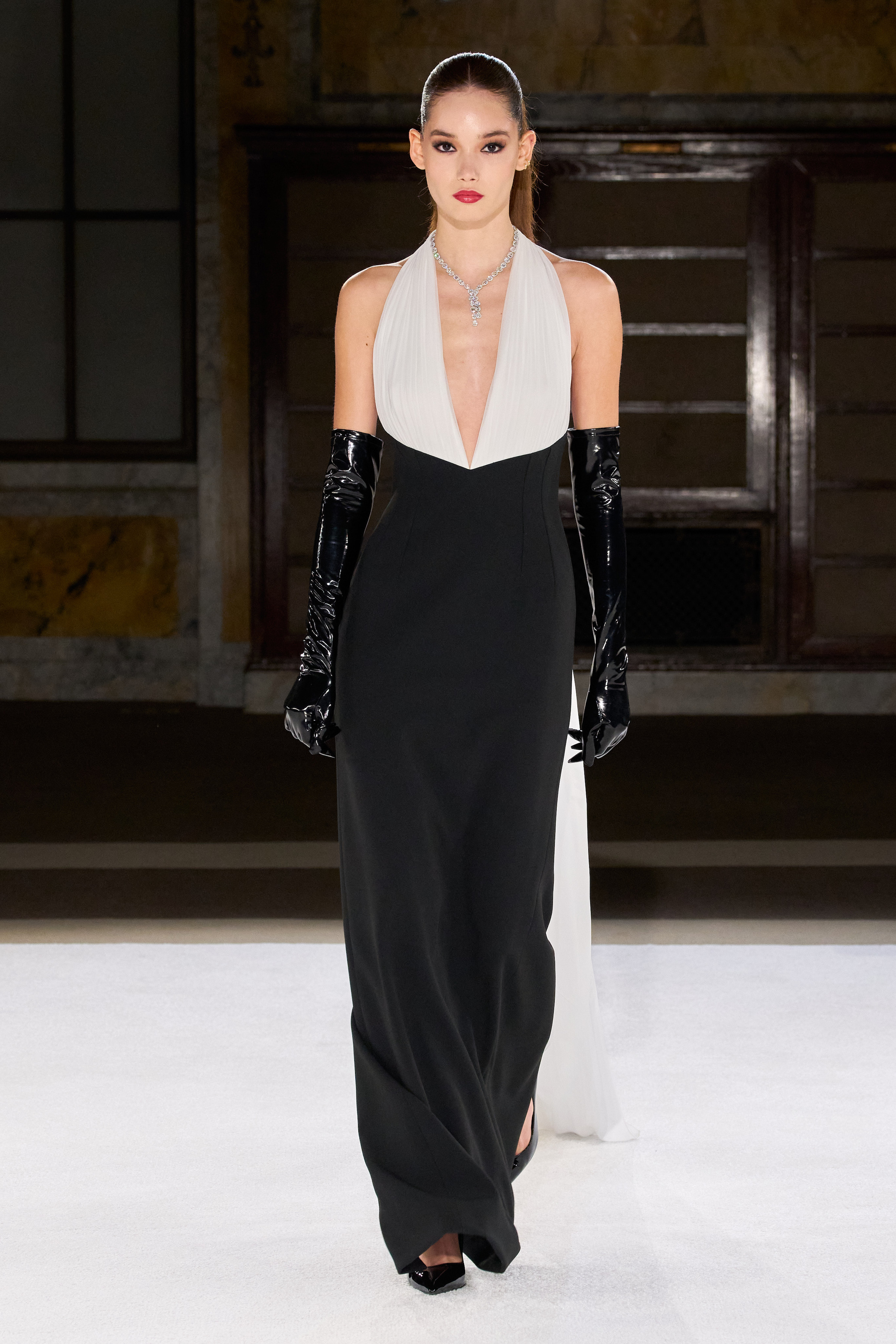
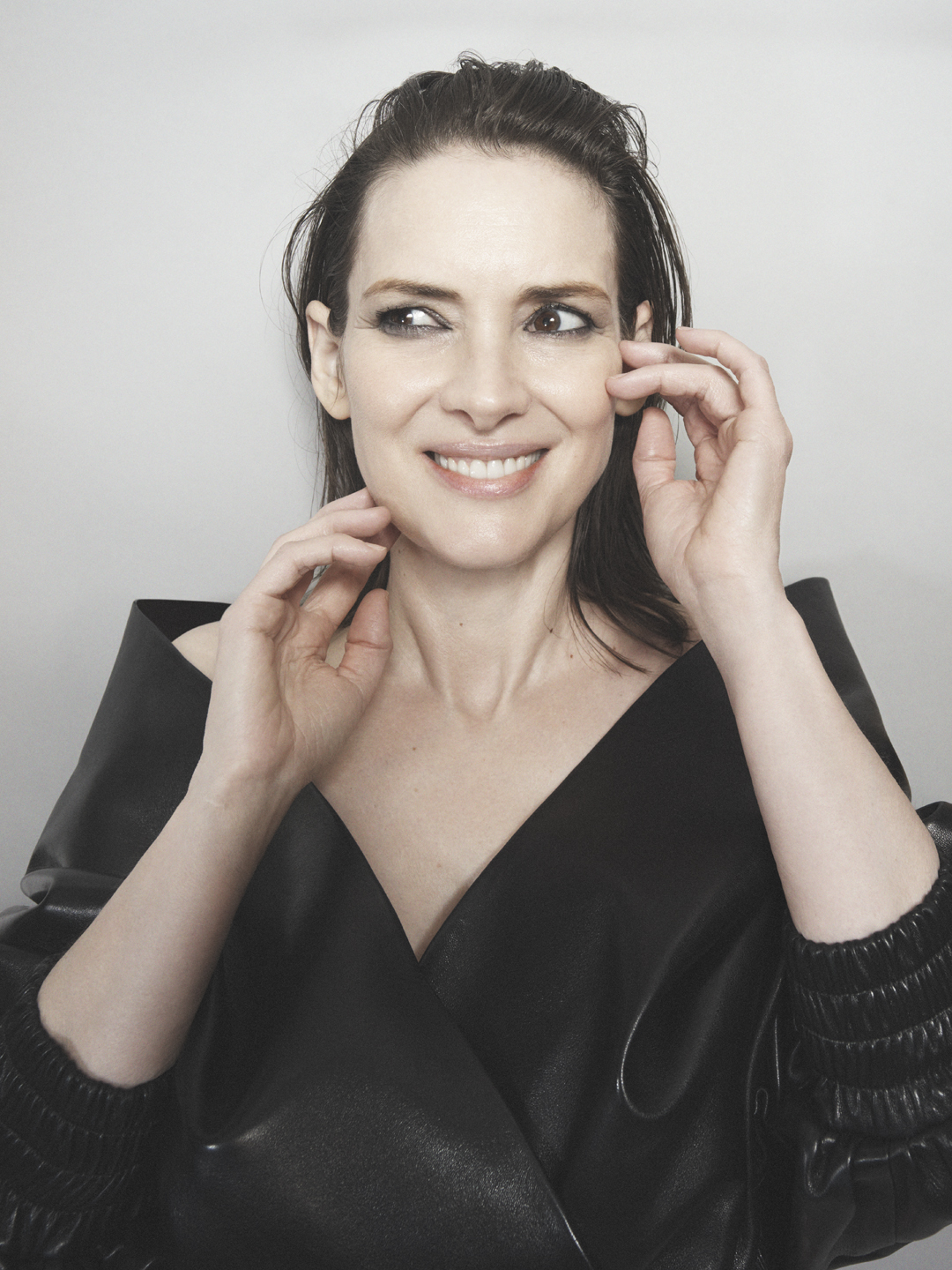
.jpg)
